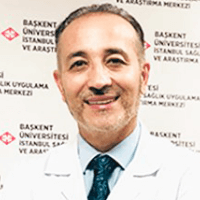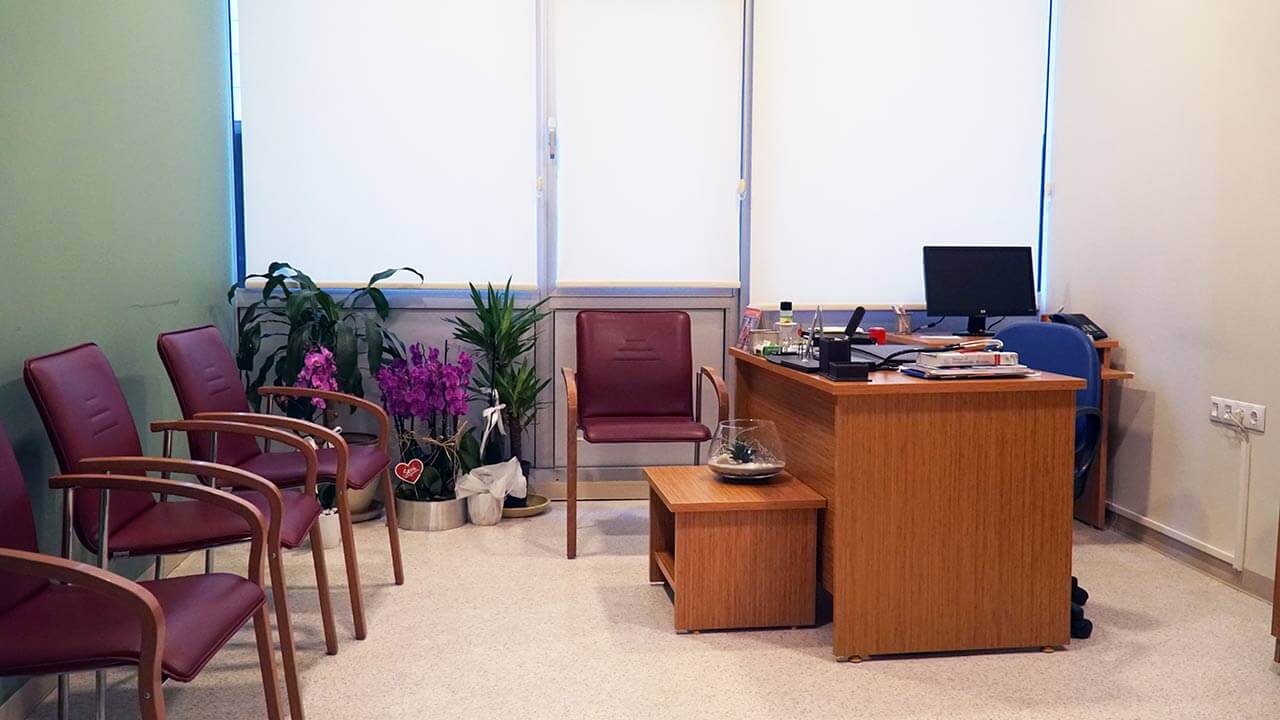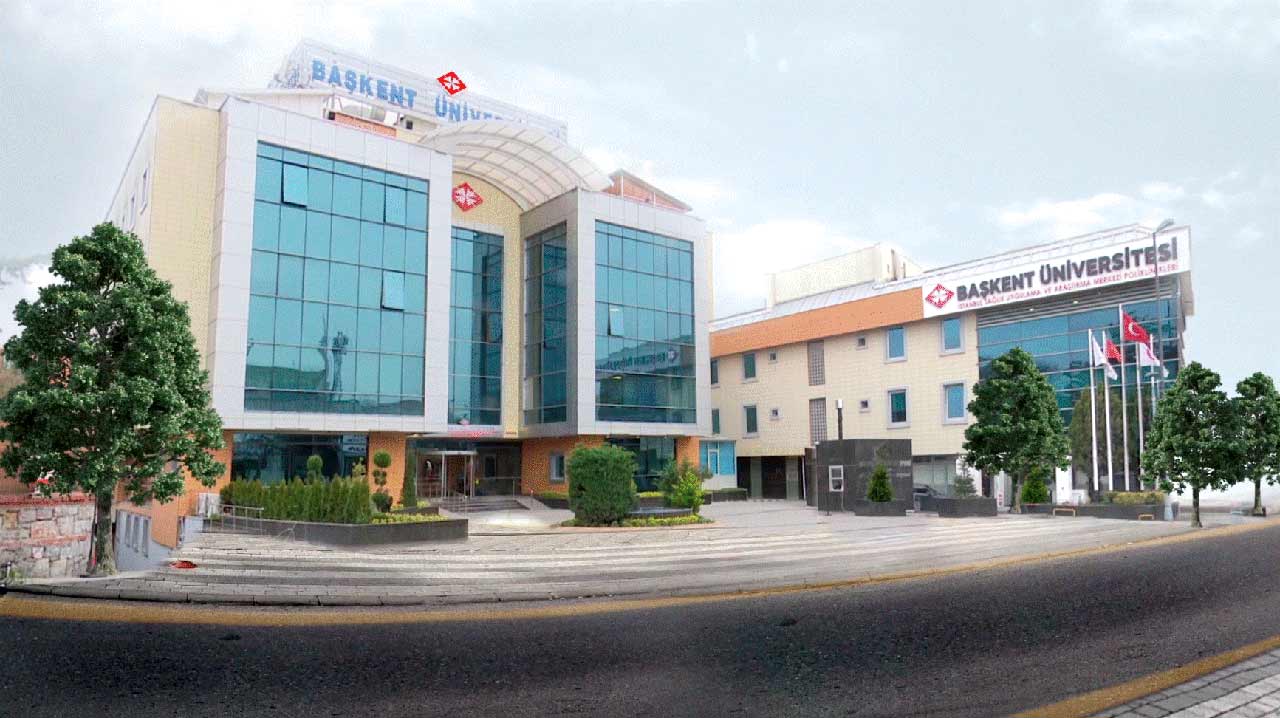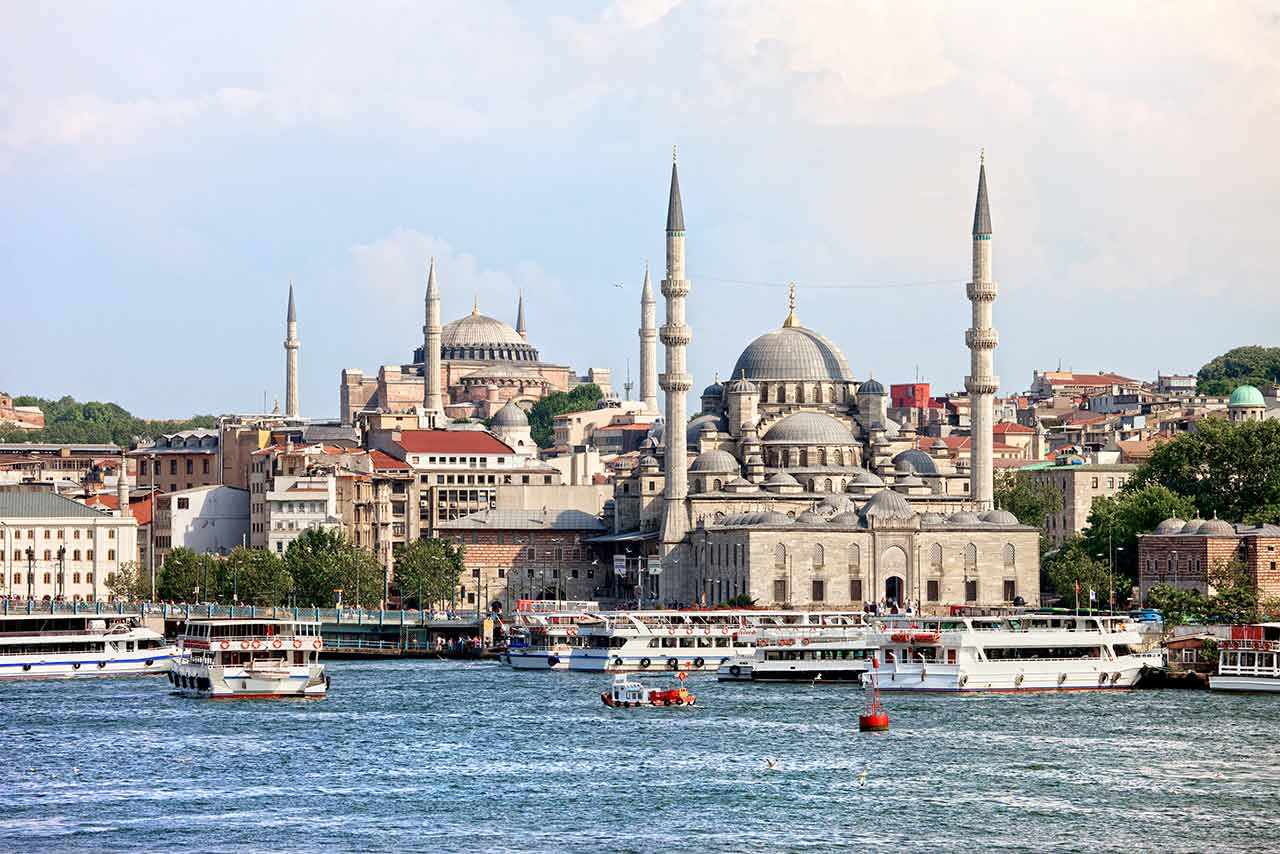
The program includes:
- Initial presentation in the clinic
- clinical history taking
- physical examination
- cardiological examination
- laboratory tests:
- complete blood count
- biochemical analysis of blood
- TSH-basal, fT3, fT4
- inflammation indicators
- indicators blood coagulation
- measurement of arterial blood pressure
- electrocardiogram
- holter monitoring (24h)
- echocardiography or transesophageal echocardiography
- preoperative care
- cardiac catheterization
- replacement (homograft or mechanical) of PV
- symptomatic treatment
- control examinations
- cost of essential medicines and materials
- nursing services
- full hospital accommodation
- explanation of future recommendations
Required documents
- Medical records
- Echocardiography (if available)
Service
You may also book:
 BookingHealth Price from:
BookingHealth Price from:
About the department
The Department of Adult and Pediatric Cardiac Surgery, Heart Transplantation, Vascular Surgery at the Baskent University Hospital Istanbul offers the full range of surgical interventions for the treatment of diseases of the cardiovascular system, including donor and artificial heart transplantation. The department's priority clinical focuses include coronary artery bypass grafting, heart valve surgery, thoracic aortic surgery, heart transplantation, as well as the treatment of diseases of the blood vessels, arteries and veins. The department also provides treatment to children with congenital heart diseases. The medical facility has an excellent technical base for performing high-complexity surgery in order to restore the normal functioning of the heart. Whenever possible, the doctors use sparing minimally invasive techniques, which ensure a short hospital stay after surgery. The skills and professionalism of the department's cardiac surgeons are known far beyond Turkey. They have performed over 126 heart transplantations and thousands of successful heart surgical procedures that have saved the lives of many patients from Turkey and abroad.
The Head Physician of the department is Prof. Dr. med. Deniz Suha Kucukaksu. The specialist has exceptional clinical experience and regularly demonstrates the highest success rates in the surgical treatment of cardiac pathologies. He underwent training in leading medical centers in the developed countries of Europe and the USA, and is a member of many international societies for cardiac surgery and heart transplantation. In addition, the doctor has prestigious research awards.
The department is one of the few medical facilities in Turkey where one can undergo donor heart and artificial heart transplant surgery. These interventions are among the high-complexity surgical procedures, and therefore they can be performed only in the most progressive hospitals in the world. The most common indications for heart transplantation are pathologies such as inoperable heart defects and heart tumors, end-stage or severe heart failure, coronary heart disease, myocardiodystrophy, severe cardiomyopathy, and others. Since the search for a donor heart takes quite a long time, the department's cardiac surgeons are increasingly resorting to an artificial heart implantation. In addition, an artificial heart transplant is indicated for patients who have contraindications for donor organ transplantation (for example, insulin-dependent diabetes mellitus). Prior to the appointment of the heart transplant operation, the patient undergoes a number of diagnostic tests, thanks to which the doctors can determine as accurately as possible the degree of the body readiness for surgery. These include a CT scan of the chest, electrocardiography and echocardiography, biochemical profile, Holter monitoring, and heart catheterization. If the diagnostic results are satisfactory, the attending physician decides to perform the heart transplantation. The department uses two modern artificial heart systems – a left ventricular assist device (LVAD) and a Total Artificial Heart system. Both donor or artificial heart transplantation ensures a high quality of life for the patient without any serious restrictions.
The department's team of doctors quite often admits patients with heart valve diseases for treatment. The most popular interventions in this area include reconstructive surgery on the aortic and mitral valves, as well as operations to replace these valves. Heart valve replacement is indicated for patients suffering from heart valve stenosis or insufficiency, which cause blood flow disturbances, which in turn leads to various cardiac pathologies. The department uses both mechanical and biological prostheses to replace heart valves. The main advantage of a mechanical valve is its unlimited service life, while valves made of biomaterial have to be reimplanted every 10-15 years. However, the placement of a biological artificial heart valve eliminates the need for lifelong anticoagulant therapy, which is required after the mechanical valve implantation. To perform heart valve replacement surgery, the department's cardiac surgeons prefer sparing minimally invasive techniques, without cardiac arrest. This approach allows them to significantly reduce the time of postoperative rehabilitation and minimize the risk of complications.
The department performs aortic valve replacement using two modern methods – transcatheter and percutaneous implantation. The department's specialists prefer the method of transcatheter aortic valve implantation (TAVI), in the course of which the valve is delivered to the heart via a catheter inserted through an artery in the groin (the femoral artery is mostly used). The new valve is implanted in place of the old one and completely replaces its functions. In this case, the intervention eliminates the need to remove the old (the patient's own) aortic valve, since the new one displaces it. Mitral valve replacement surgery is performed using both spaing laparoscopic techniques and classical open surgery.
The department's team of cardiac surgeons also specializes in coronary artery bypass grafting in patients with coronary heart disease. When performing this type of operation, the doctors set themselves the goal of creating a new bypass for blood flow outside the blocked part of the artery. The department offers all options of coronary artery bypass grafting – beating heart bypass surgery and coronary artery bypass grafting with the use of a heart-lung machine, minimally invasive coronary artery bypass grafting without opening the chest, as well as coronary artery bypass grafting using the da Vinci robotic system. Prior to the bypass surgery, the department's specialists without fail perform diagnostic coronary angiography, which allows them to assess the state of the heart vessels and their patency. A part of the patient's own artery or vein from the arms, chest or legs is used as a graft. The artery or vein for the graft formation is harvested using endoscopic techniques, which can significantly reduce the number of postoperative complications. When performing the intervention, the cardiac surgeons clamp the clogged artery with a thin elastic band to stop the blood flow. The formed graft goes from the aorta to an area below the level of the obstruction, after which blood flow to the heart is restored.
The department's key clinical focuses include:
- Donor heart transplantation
- Artificial heart transplantation
- Left ventricular assist device (LVAD)
- Total Artificial Heart
- Reconstructive heart valve surgery
- Heart valve replacement (focus on aortic and mitral valve replacement surgery)
- Coronary artery bypass grafting
- Beating heart bypass surgery
- Bypass surgery using a heart-lung machine
- Minimally invasive coronary artery bypass grafting without opening the chest
- Coronary artery bypass grafting using the da Vinci robotic system
- Surgical correction of congenital heart defects in children
- Surgical treatment of diseases of the thoracic aorta
- Vascular surgery
- Treatment of varicose veins
- Treatment of post-thrombotic syndrome
- Treatment of lymphedema
- Treatment of trophic ulcers of venous etiology
- Treatment of carotid artery diseases
- Treatment of abdominal aortic aneurysm
- Other surgical services
Curriculum vitae
Higher Education and Postgraduate Training
- 1987 Bachelor's Degree, Faculty of Medicine, Istanbul University.
- 1992 Internship, Department of Cardiovascular Surgery, Turkish Medical Specialty Hospital.
- 2000 Associate Professorship.
- 2006 Professorship, Yeditepe University.
Professional Career
- 1986 - 1987 Internship, Department of Cardiology, University Hospital Cologne, Germany.
- 1987 - 1992 Internship, Department of Cardiac Surgery, Turkish Medical Specialty Hospital.
- 1992 - 1994 Attending Physician (conscription), Department of Cardiac Surgery, Turkish Medical Specialty Hospital.
- 1993 - 1994 Internship, Department of Adult and Pediatric Cardiac Surgery, St.Vincent Hospital and St.Emanuel Hospital, Portland, Oregon, USA.
- 1994 Internship, Department of Cardiac Surgery, focus on heart failure surgery, Broussais University Hospital, Paris, France.
- 1994 - 1998 Chief Clinical Resident, Department of Cardiac Surgery, Turkish Medical Specialty Hospital.
- 1998 - 2004 Deputy Chief of the Department of Cardiac Surgery, Turkish Medical Specialty Hospital.
- 1998 - 2004 Chief Coordinator of the Heart Transplantation and MCSS Program, Department of Cardiac Surgery, Turkish Medical Specialty Hospital.
- 2001 - 2002 Internship on artificial heart implantation (DeBakey left ventricular assist device), Department of Cardiac Surgery, Baylor College of Medicine, Houston, USA.
- 2002 - 2004 Chief Surgeon, Merkezi Hospital, Baku, Azerbaijan.
- 2004 - 2005 Founder and Head of the Department of Cardiac Surgery, Ankara MESA Hospital (TOBB).
- 2005 - 2010 Founder and Head of the Department of Cardiac Surgery, as well as Head of the Heart Transplantation and MCSS Program), Faculty of Medicine, Yeditepe University.
- 2010 Surgical training, artificial heart implantation, Animal Lab, IMM Research Center, Paris, France.
- 2010 - 2014 Chief Surgeon, Founder and Head of the Heart Transplantation and MCSS Program, Florence Nightingale Hospital Sisli, Istanbul.
- 2015 Lecturer and Chief Surgeon, Department of Cardiac Surgery, Faculty of Medicine, Bahçeşehir University, Medical Park Göztepe Hospital.
- 2015 Vice Dean, Faculty of Medicine, Bahçeşehir University.
- Since 2018 Professor in Cardiac Surgery, Başkent University Istanbul Health Practice and Research Center.
Awards and Honors
- 1992 and 1993 Surgical Science Award, Ankara Chamber of Medicine.
- 1992 Original Experimental Research Award, 6th Turkish Vascular Surgery Congress.
- 2002 Best Poster Award, Congress of the Turkish Transplantation Society (ONKKD).
- 2004 Best Clinical Immunology Study Award, Congress of theTurkish Transplantation Society (ONKKD).
- 2006 Best Oral Presentation Award, Turkish Society of Cardiology.
- 2012 Machine Production Award, Koç University.
- 2016 Second Prize for the Best Experimental Study, Turkish Society of Cardiovascular Surgery (TKDCD).
- 2018 Contribution to Science Award, Bahçeşehir University.
Memberships in International Professional Societies
- European Society for Cardiovascular Surgery.
- International Society for Rotary Blood Pumps.
- International Society for Heart and Lung Transplantation.
- European Society for Artificial Organs.
- Society for Thoracic Surgery (STS).
Memberships in Turkish Professional Societies
- Turkish Society of Cardiology.
- Turkish Society of Cardiovascular Surgery.
- Turkish Society of Vascular and Endovascular Surgery.
- Association of Artificial Organs and Support Systems (Founder and President).
- Turkish Transplantation Society.
Photo of the doctor: (c) Istanbul Başkent Hospital
About hospital
The Baskent University Hospital Istanbul is a progressive medical complex, whose primary purpose is to provide medical care of the highest quality in a pleasant and comfortable environment. The hospital is part of the prestigious Turkish Baskent University Healthcare Group, whose outstanding achievements are known not only nationally, but also in the international medical arena. The medical group was founded by Prof. Dr. med. Mehmet Haberal, who was the first specialist in Turkey who performed kidney transplantation from a living donor. The hospital in Istanbul opened its doors to the first patient on February 23, 2007, and since then has gained a solid reputation among the top medical facilities in Turkey.
The medical complex has a high-tech base both for accurate diagnostics and effective treatment according to international standards. Special attention should be given to the medical staff of the hospital. The hospital employs professors and doctors with colossal clinical experience. They successfully cope even with especially complex clinical cases. Many specialists underwent training in leading medical centers in America and Europe.
The hospital represents almost all branches of modern medicine. The areas of special competence of the hospital are transplant surgery, cardiac surgery, general surgery, urology, otolaryngology and other medical disciplines. The medical complex has the prestigious ISO 9001:2015 certificate, which is awarded only to the hospitals with impeccable quality of medical service.
The hospital has 125 beds for patient hospitalization, including additional beds in Intensive Care Units, Dialysis and Palliative Care Sections. Every year, the hospital admits more than 7,000 inpatients and more than 180,000 outpatients. In addition, the doctors annually perform more than 4,000 surgical interventions of varying degrees of severity in state-of-the-art operating rooms of the hospital. The medical facility admits many patients from foreign countries, which confirms its high credibility at the international level.
Photo: (c) Istanbul Başkent Hospital, (с) depositphotos
Accommodation in hospital
Patients rooms
The patients of the Baskent University Hospital Istanbul live in comfortable rooms with modern design. All patient rooms are made in light colors and have an ensuite bathroom with shower and toilet. The standard patient room furnishings include an automatically adjustable bed, a bedside table, a wardrobe for clothes, a table and chairs for receiving visitors, as well as a telephone and a TV.
Meals and Menus
The patient and the accompanying person are offered a daily choice of three menus. If you are on a specific diet for any reason, you will be offered an individual menu. Please inform the medical staff about your dietary preferences prior to the treatment.
Further details
Standard rooms include:
Accompanying person
During the inpatient program, an accompanying person may stay with the patient in the room or at a hotel. Our managers will help you choose the most suitable option.
Hotel
During the outpatient program, the patient may stay at the hotel. Our managers will help you choose the most suitable option.






